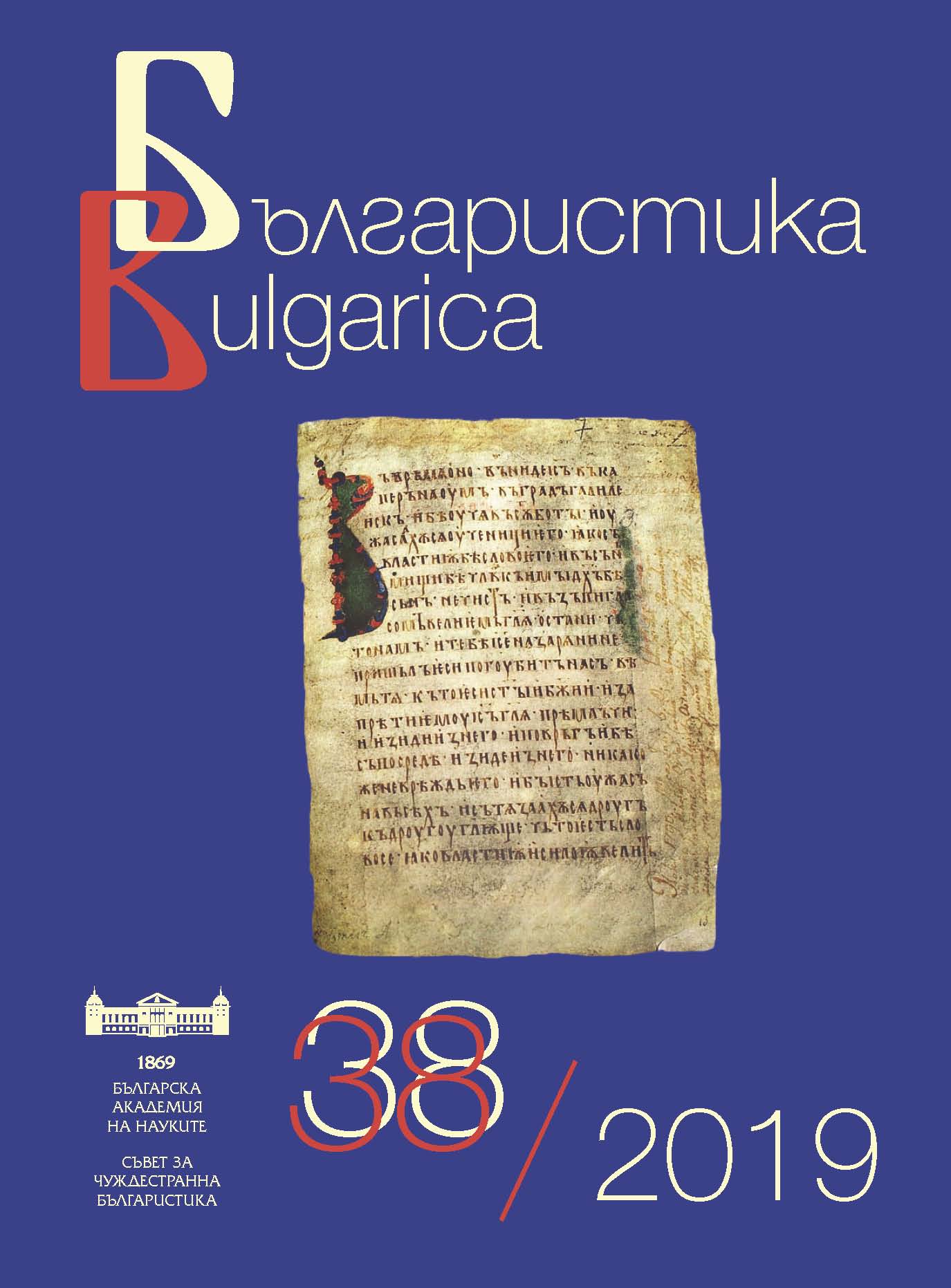
Научни форуми
Data about scientific events in the field of the humanities in Bulgaria in 2019
More...We kindly inform you that, as long as the subject affiliation of our 300.000+ articles is in progress, you might get unsufficient or no results on your third level or second level search. In this case, please broaden your search criteria.

Data about scientific events in the field of the humanities in Bulgaria in 2019
More...

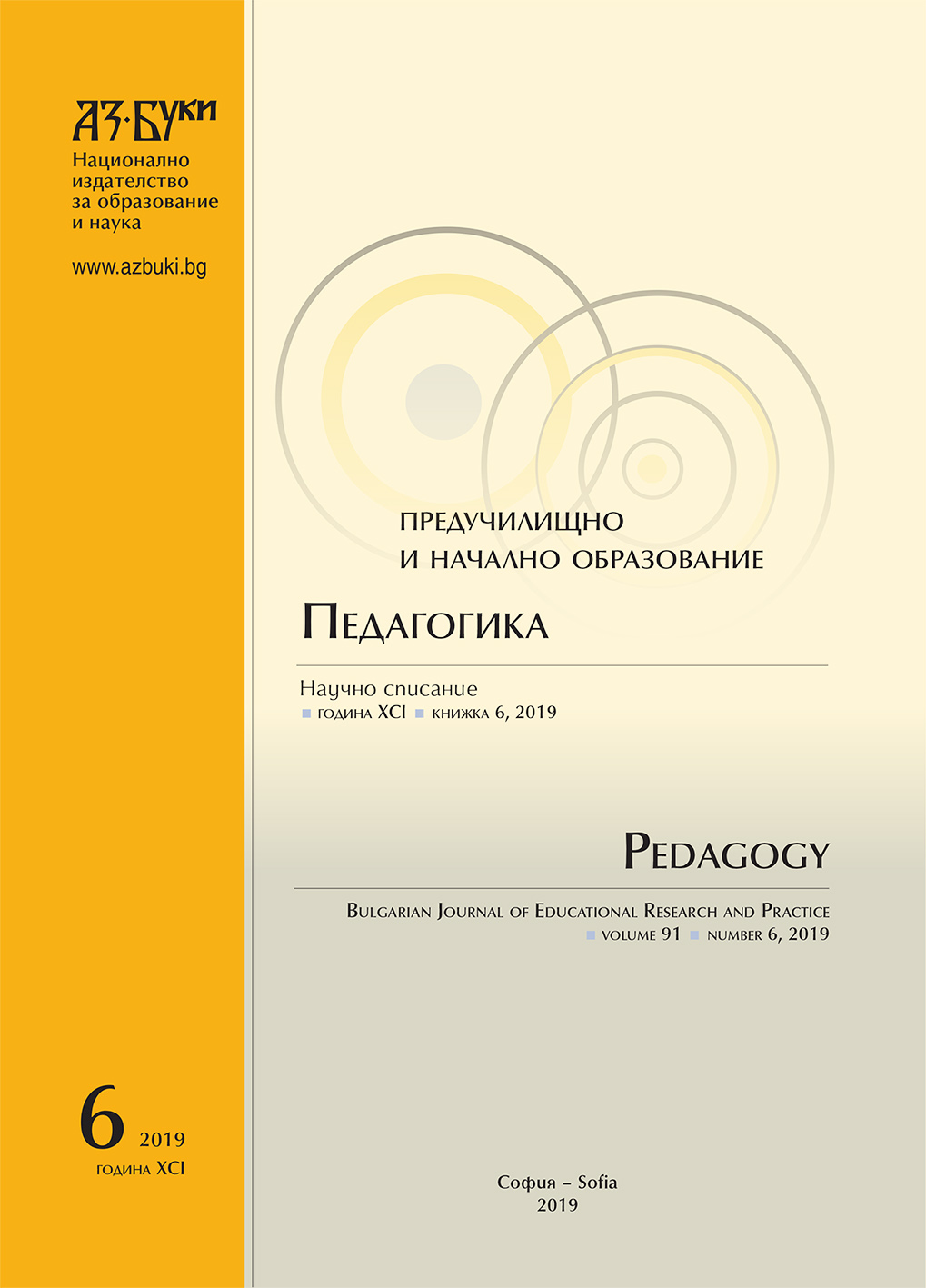
Applied linguistics has come under the sway of two seemingly antithetic views – one prioritizing the social, the other – bringing to the fore the individual dimension. The present paper is aimed at revisiting foreign language evaluation from a dialectical perspective which allows for providing insights into the role of affective factors. It reports on a socially-situated investigation of language performance that accounts for students’ motivation and anxiety conceived of here as symbolic resources. A total of 50 high-school learners of English filled in R. Gardner’s Attitude / Motivation Test Battery (AMTB) at two points in time and participated in a quasi-experimental study. A pre-test – post-test control group design was employed. The findings furnish evidence of the significant effect of increasing L2 motivation and alleviating anxiety on classroom L2 achievement.
More...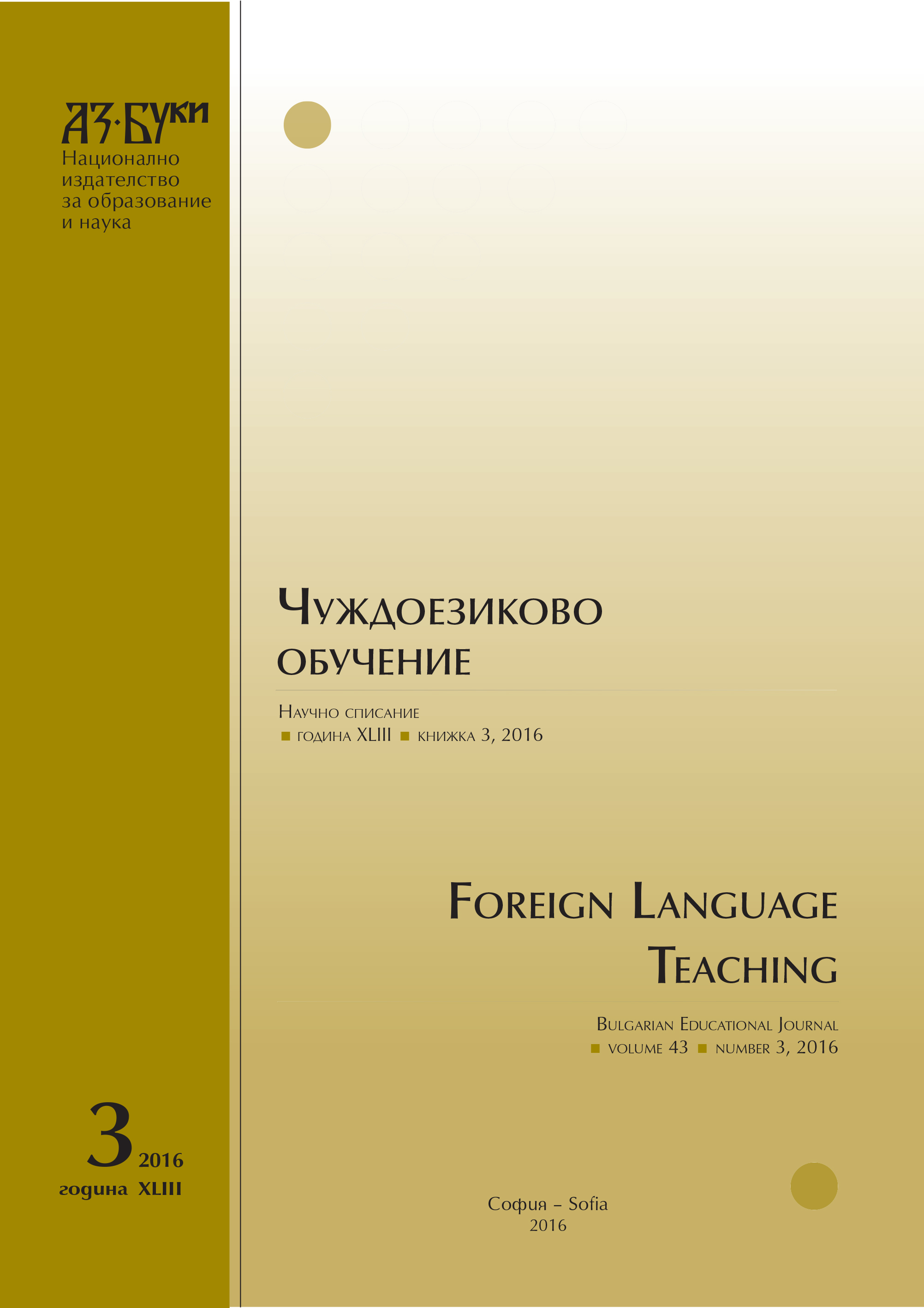
The article presents theoretical foundations of the dictionary of French words in Bulgarian language. Special attention is paid to Lexicographical principles, macro- and microstructure of the dictionary.
More...
The article helps Foreign Language teachers that would like to employ in their classroom a more varied idea to work with texts, namely what text linguistics has on offer. A system of 15 progressively compounding and building text-work activities is presented.
More...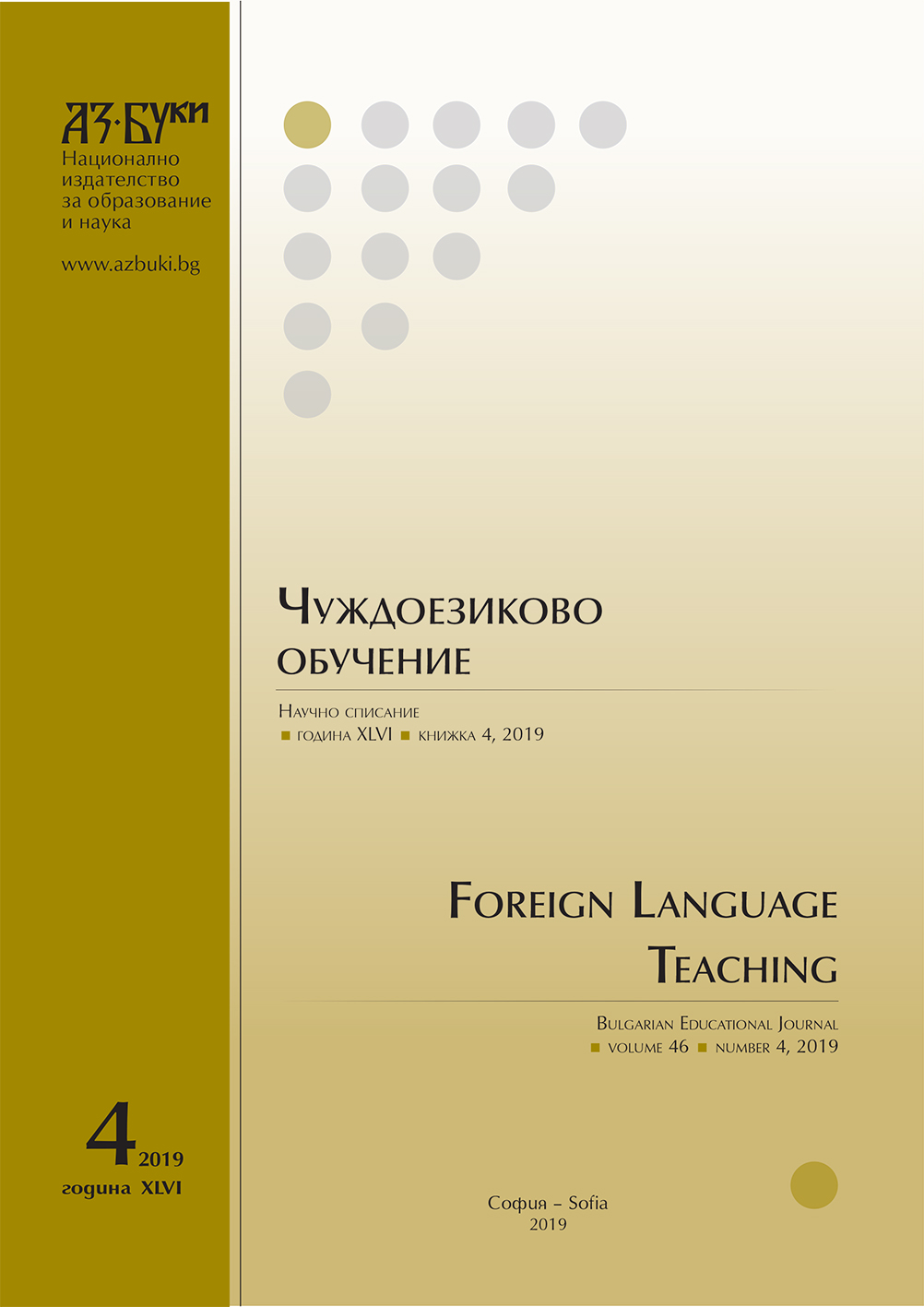
According to this research, the definiteness is a syntactic category and it is called “predicateness”. Predicateness may serve as characteristics of the subject, as well as of the object of the action expressed by the verb. This characteristics is a consequence of the predicativity. The identifying member is a syntactic category synonym, attributed to the attribution of the predicate to an entity that may be the first verb, a subject, and a second verb, addition. This attribute is attributed to the construction of the subject-predicate attitude as the content of predictability - the main sign of the sentence
More...
The article presents the essay as one of the means of evaluation of students with different levels of language competence. The author quotes extracts from several works written by first years’ graduates of Bulgarian at the Faculty of Arts of Comenius University in Bratislava. Although they did not write the texts in Bulgarian, students presented high level of theoretical knowledge about Bulgarian language, literature and culture. Belletristic style enabled demonstration of deep attachment of new students of Bulgarian towards philology, which they decided to study.
More...
The article provides a historical point of view on foreign language teaching and learning in Bulgaria while analyzing certain opinions and conceptions of Bulgarian publishers, writers and teachers regarding this topic, discovered in the prefaces of several books published from 1830’s to 1870’s. The question of foreign language education during the Bulgarian Revival period is connected not only to the need of intercultural communication within the framework of the multilingual Ottoman Empire as well in the European context, but it also contributes to the development of the Bulgarian linguistic thought during that era. At the same time, the foundation concepts of language intellectualization and internationalization being two of the major goals of the Bulgarian standard language construction process are strongly related to the basic ideas of standardization, cultivation and high prestige of the literary language still in a stage of shaping.
More...

The article deals with intercultural competence development of students learning Russian as a foreign language (B2 level) in the Russian language environment during the research lesson. The topic of this lesson “Cultural code of childhood in poetry” allows students to carry out linguistic and cultural research: they analyze key words of prominent poetical works focused on the childhood in the native and Russian poetry, compare them and make conclusions on similarities and differences in cultural codes of different nations. Analysis of their conclusions shows that the research lesson is one of the most effective forms of intercultural competence development.
More...
The paper is devoted to fixing and proving the significance of the special theatrical cultural code for the Russian language, culture and language mentality. Being word-centered, Russian culture relates to the theater genetically: the art of skomorohi had a serious impact on the lexical, phraseological and culturological base of the Russian language. Analysis of the “Russian Associative Dictionary” data allows to prove that the idea of the theater is fully and multifacetedly represented in the language mentality of the Russians. Special attention is paid to linguodidactic possibilities of using the theme of the theater on the lessons of Russian as a foreign language.
More...
The paper is devoted to the use and description of ball games in Russian as a foreign language teaching. Ball games are concerned not only as a tool of popularization of Russian language and culture, but also as an approach to both communicative, socio- and intercultural competences. The focus is put on the ways of exploring some 19 century traditional ball games as a valuable authentic source appropriate for different categories learners.
More...
The paper presents a model of using song in Russian as a foreign language teaching as an approach to both linguistic and sociocultural competences. The focus is put on the ways of exploring song (lyrics, music and dance) as a valuable authentic source in working on different aspects, such as phonetics, vocabulary and grammar, as well as for mastering listening, speaking and even writing skills. The criteria of using sound and video material are set. The lesson stages are described. Exercise types as practical activities are suggested.
More...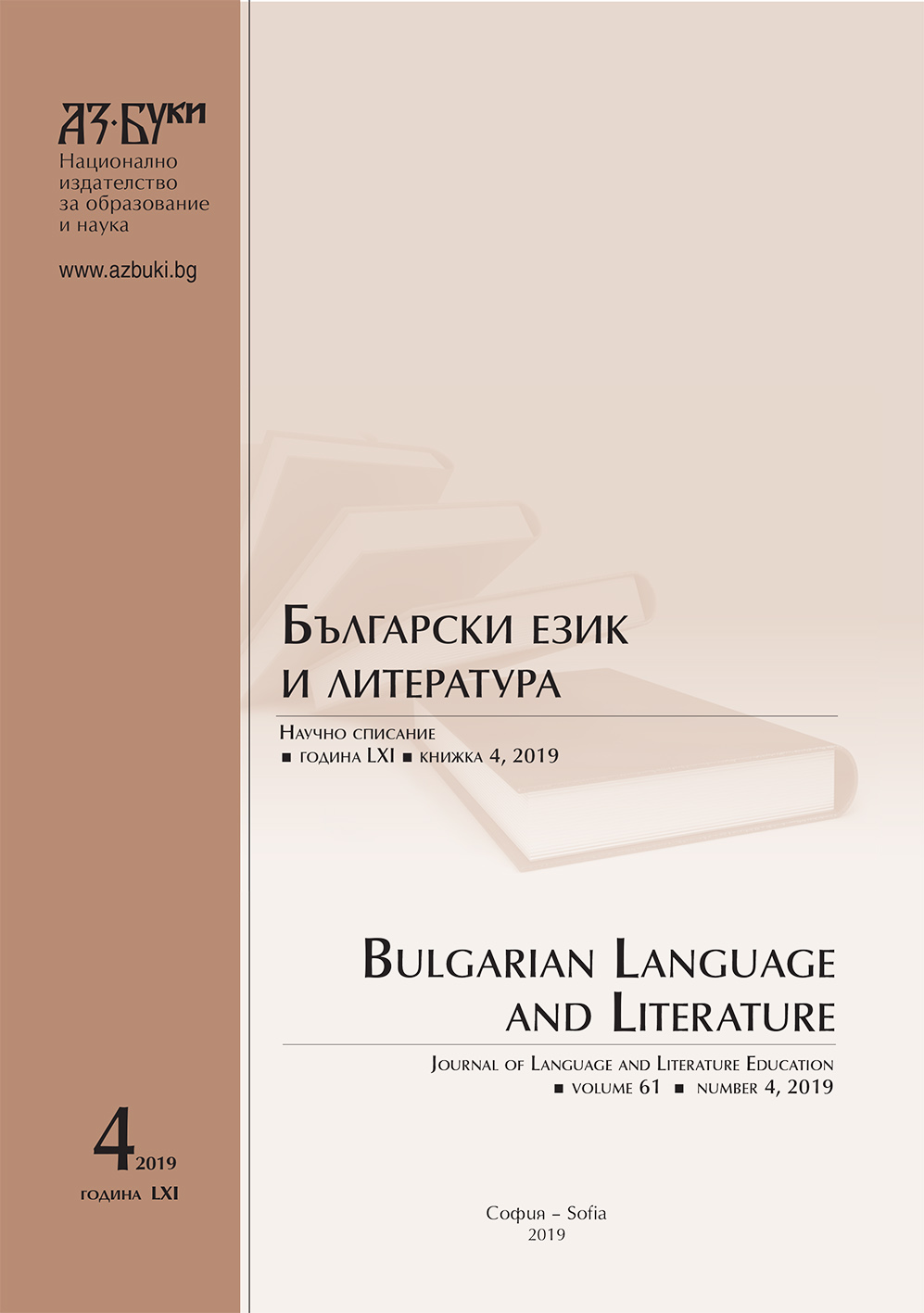
The Russian-Bulgarian-Czech-Slovak-English paremiological core was revealed by the author in 2018. It is based on the Russian paremiological minimum of G. L. Permyakov and its reflection in the three Slavonic languages and the English language. The core is a condensation of a few author’s published collections of frequent current Slavonic and English proverbs and the results of the author’s sociolinguistic paremiological experiment. Special attention is paid to the semantics of Bulgarian proverbs as proverbial parallels of Russian paremiological minimum and – for the first time –t o the semantic specifics of Bulgarian proverbs as a part of the analyzed 5-languages paremiological core.
More...
Bulgarian Golden Age is, on the one hand, a time of territorial expansion and significant presence on the political map of Europe; on the other hand, it is the period of the first major peaks in Slavic literature, and, probably, in arts and architecture. At its core, the Golden Age is joining the spirituality and mentality of the Byzantine world and adoption of the achievements of its centuries-old philosophical tradition. The Byzantine models in literature were borrowed by using two co-existing principles: copying and adaptation. The former might be observed in most of the works intended for non-liturgical individual or monastic reading, which were translated in full. The latter is found in miscellanies compiled from partial translations and excerpts, or in Old Bulgarian translations that were abridged, edited, or reworked. The article aims at examining the most important examples of such adaptation and its features, pointing out the role of the aristocracy and the ruler himself in guiding these processes.
More...

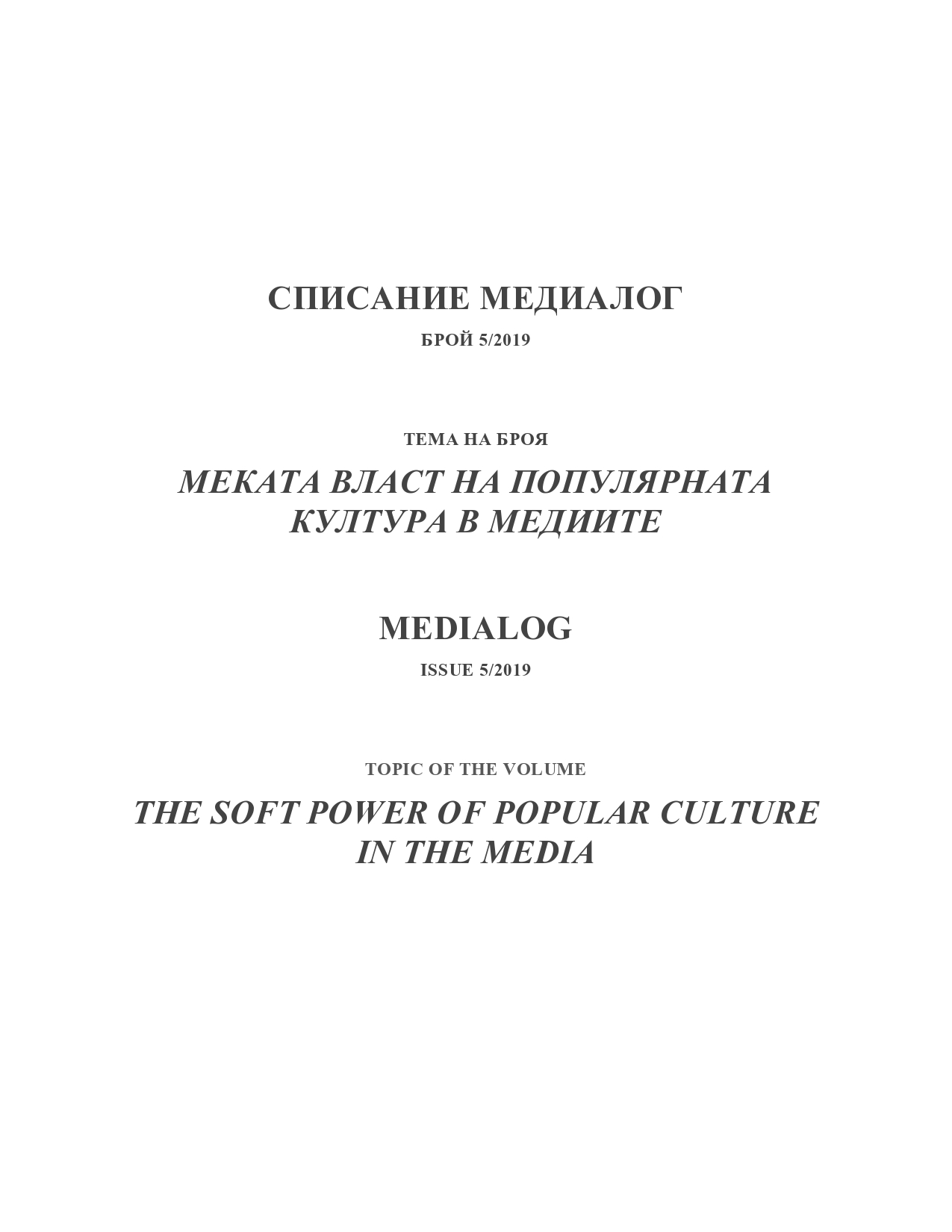
Conference report on the International academic conference “From word to action: tales and representations”, Sofia University, 02.05-04.05 2019
More...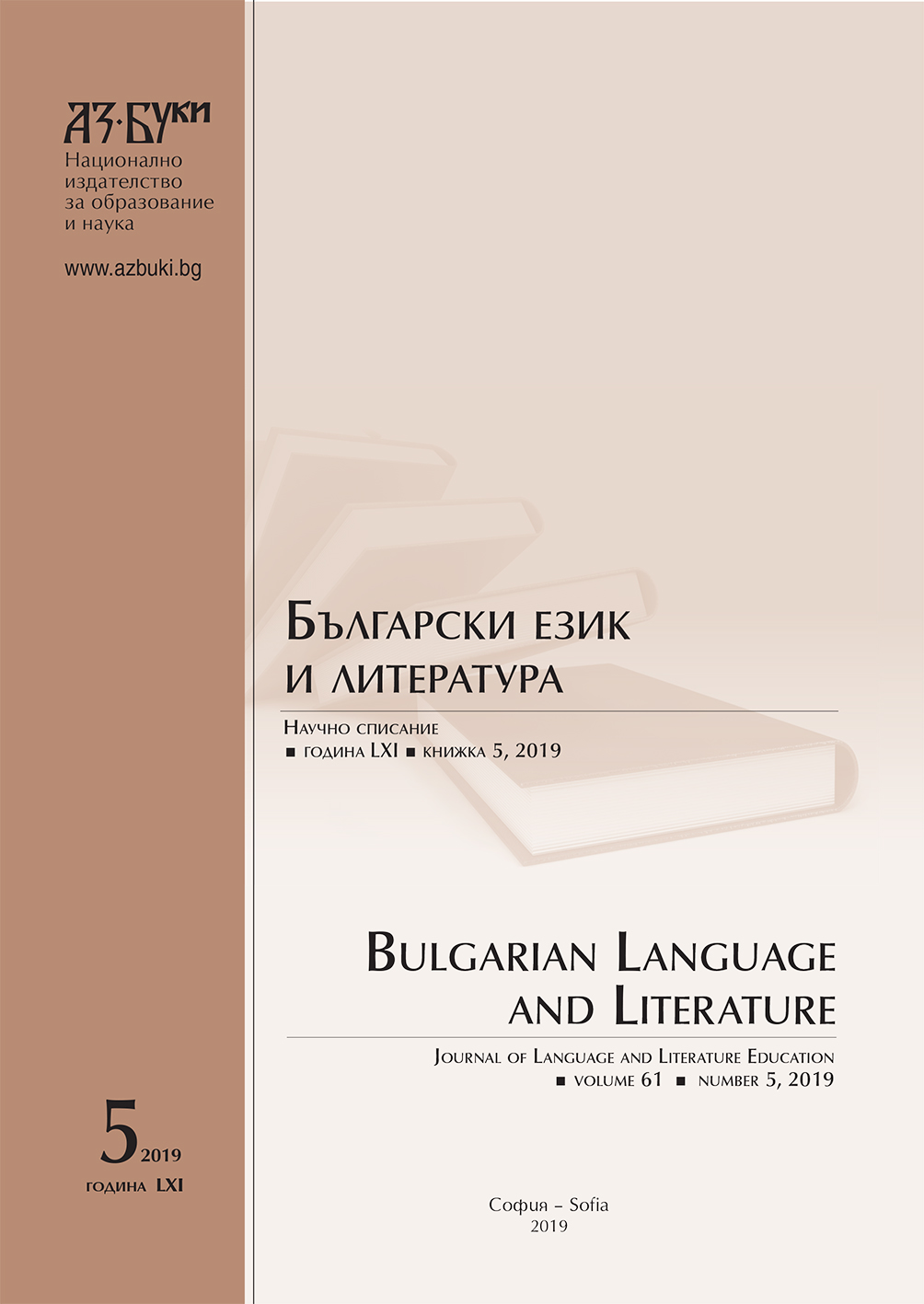
The article discusses two key messages of the children‘s works of Konstantin Velichkov: of Christian humbleness and civic implacability. Considering the fact that these values combine relatively rare both in real life and literature, the paper supports the view of the semantic passability at the border between religious-theme poems, presenting man in a silent dialogue with himself and with God, and fables whose allegories refer to the need for an active stance on the socio-institutional status-quo. The analysed texts are interpreted in the paradigm of the modern idea of the Orthodox theology of participation, according to which true humanity implies not only meekness but also benevolence towards the community and disagreement with political autocracy.
More...